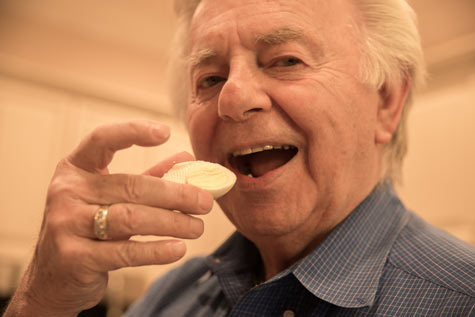
High protein foods help seniors recover more quickly from surgery.
Pass the protein, please! Recent scientific studies are highlighting the value of high protein food-based diets for older adults, especially during occasions of stress, such as when battling a chronic disease or acute illness, or preparing for a surgical procedure or hospitalization, when protein is digested less effectively. And even when seniors are healthy, protein foods impact aging and are vital to preserving muscle strength and mass, healthy bones and more.
However, up to a third of all seniors aren’t consuming sufficient amounts of protein, for a variety of reasons, for example:
- Taste impairments
- Difficulties with swallowing
- Monetary constraints
- Decreased appetite
- Dental problems
And, the less active lifestyle that numerous older adults lead even further compounds the damaging impacts of inadequate protein consumption, such as:
- Deteriorating mobility
- Reduced muscle mass and strength
- Longer recovery times when ill
- Eventual loss in independence
Fortunately, folks who do consume recommended amounts of protein have a propensity to continue to maintain independent functionality with tasks such as getting dressed and looking after other personal hygiene needs, walking, and climbing stairs. According to Wayne Campbell, professor of nutrition science at Purdue University, “While eating an adequate amount of protein is not going to prevent age-associated loss of muscle altogether, not eating enough protein can be an exacerbating factor that causes older adults to lose muscle faster.”
The studies show that protein should be acquired from natural food sources, versus through protein shakes. Recommended protein levels are generally .8 grams of protein per 2.2 pounds of body weight each day; so, for a 120-pound woman, that equates to 48 grams of protein/day. However, for people experiencing the stressors stated previously, the guideline grows to 1.2 – 1.5 grams of protein per 2.2 pounds of body weight.
These protein-rich foods are superb choices:
- Chicken (28 grams of protein per 3-ounce serving)
- Yogurt (18 grams of protein per 6-ounce serving)
- Cottage cheese (14 grams of protein per ½-cup serving)
- Lentils (9 grams of protein per cup)
- Milk (8 grams of protein per cup)
Make sure to have a discussion with an older adult’s doctor before making any dietary changes. Once a dietary plan is authorized, let Grace Home Care help by planning and preparing nourishing, delicious meals, picking up groceries and ensuring the kitchen is stocked with wholesome meals and snack options, providing encouragement to maintain an active lifestyle, and so much more – all bringing about improved overall health.
Call us at any time at 785-286-2273 to request a complimentary in-home consultation from our compassionate care team and to learn more about our top-rated home and memory care in Topeka, KS and the surrounding areas.
